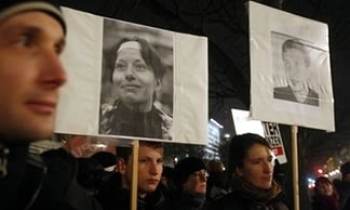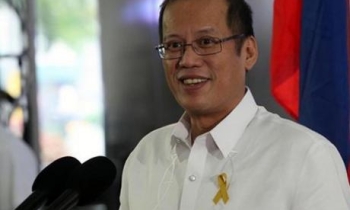ISLAMABAD: Legal and political wrangling over the suspension of the chief justice of Pakistan by President Pervez Musharraf appears to be leading to new pressures on the media, news organizations and media watchdog groups say.
Media organizations and rights groups say that the government is becoming increasingly intolerant of the independent media's coverage of the judicial crisis that began in March, when Musharraf suspended the judge, Iftikhar Mohammad Chaudhry. Nationwide protests over Chaudhry's removal have paralyzed the country, with more than 40 people killed last weekend.
Government officials deny clamping down on the media and say the press enjoys unprecedented freedom.
"There is a negative perception," Syed Anwar Mahmood, secretary of the Ministry of Information and Broadcasting, said in an interview late last month.
He said that the media practice self-censorship and that the critical coverage of the president that has appeared in newspapers and on television recently would have been unimaginable under former governments.
But journalists here and international media watchdog groups say that press freedom has been steadily declining in Pakistan over the past few years.
Reporters Sans Frontières, a watchdog group based in France, has reported a gradual erosion of media freedom in Pakistan over the past four years. According to an index of worldwide press freedom published in October, "despite fairly outspoken media outlets, the country has seen kidnappings of journalists and physical attacks by police or intelligence agents."
Of the 168 countries surveyed in the index, Pakistan's ranking slipped to 157th in 2006 from 119th in 2002.
Journalists here are barred from reporting independently, without government escorts, from the tribal areas that straddle the border with Afghanistan, where supporters of the Taliban hold sway. And journalists who live in those areas have been threatened and kidnapped for their work.
Media organizations say recent coverage that has criticized the government's actions in the judicial crisis has increased Islamabad's attempts to influence the media. On May 9, the Supreme Court barred some coverage of the charges against Chaudhry.
"Discussions, comments or write-ups that are likely to interfere with the legal process, ridicule, scandalize or malign the court or any of its judges, or that touch on the merits of the case are strictly prohibited," the state-run media quoted the court as ruling in a directive it issued. Under Pakistani law, a contempt citation could lead to imprisonment.
A day after that ruling, the Committee to Protect Journalists, a media watchdog group based in New York, urged the Supreme Court to "immediately withdraw the alarming press directive" that it said had been "designed to stifle coverage of a controversial issue involving the court."
In the past month, lawyers and opposition members who accuse Musharraf of trying to subdue the judiciary have clashed with the police in protests across the country.
Analysts have described the protests as the most serious crisis faced by Musharraf since he took power in 1999.
Independent television news programs have covered the protests, but they have been careful not to air footage of people shouting or displaying slogans against the army.
The government-run media, on the other hand, has steadily criticized those who support the chief justice for "politicizing a legal issue."
On April 22, AAJ, a popular private television station, was threatened with closure after the Pakistan Electronic Media Regulatory Authority accused the channel of "inciting violence" through its coverage of the events surrounding the suspension of the chief justice.
The media authority said that AAJ had violated a code of conduct that bars broadcasters from airing programs that may incite violence, undermine law and order, show contempt for the courts or criticize the armed forces.
On April 25, a provincial court temporarily suspended the media authority's ruling. The matter is still under consideration by the court.
The censuring of AAJ followed a police raid on the Islamabad office of GEO, another popular television station, in a bid to stop the station's live coverage of a protest by lawyers.
Musharraf apologized after the raid, saying in an interview with GEO, which was broadcast by the station, that the action had been "a sabotage of whatever we stand for."
Syed Talat Hussain, director of news and current affairs for AAJ, said in an interview that "the judicial crisis has landed them in a thick soup," referring to the government. "It has given them a beating of their life as far as their image is concerned. The international community has poured scorn on them. The country's image has been badly damaged. So, typically, they reacted to the symptoms of their troubles, which is what they see on screen and what they read in print."
Ansar Abbasi, an editor at The News, a leading daily in Pakistan, has written a series of articles criticizing the judicial crisis and said that he had been threatened and intimidated by government officials.
"I was told by senior government officials that you - the media - are responsible for creating the hype which has led to this crisis getting worse day by day," he said in an interview this month.
The government's recent actions have spurred protests by media organizations and rights groups.
Human Rights Watch, in an open letter to Musharraf on April 27, expressed concerns "about concerted and increasing attempts by the Pakistani government to muzzle the media."
Dawn, the largest independent publisher of English-language newspapers and magazines in the country, said the government had put pressure on it for its critical reporting on the protests.
Hameed Haroon, chief executive and publisher of Dawn Group, wrote in a posting on the company's Web site that it had lost two-thirds of its government advertising revenue since December 2006.
Government officials, however, remain adamant that the media have greater freedom under Musharraf than in the past. They point to more than 30 private television stations as a clear indication of the government's liberal media policy.
"They are free to report whatever they want," Mahmood, the secretary of the Ministry of Information and Broadcasting, said. "Nothing can be hidden these days. Everything comes out in the papers the next day. I really don't know what else do they want."









